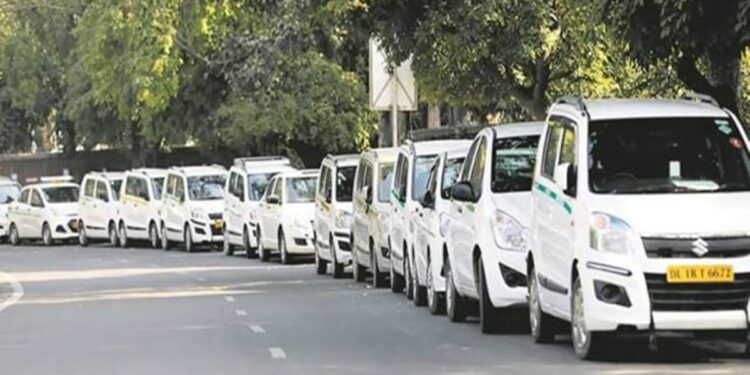Global investment firm Vanguard Group has slashed cab-hailing startup Ola’s valuation by around 35% to $4.8 billion from its earlier known valuation of $7.4 billion. The back-to-back markdowns of Indian startups like Swiggy, Byju’s and Oyo by shareholders come at a time when investors have turned cautious about an impending global recession as well as a rout in the tech stocks in the previous year.
As of February 28, Vanguard has assessed the value of its stake in Ola to be $33,865,000. This represents a decrease from $51,825,000 in August of the previous year. Vanguard’s valuation suggests that Ola’s current fair market value is approximately $4.8 billion.
Also read: Nitin Gadkari calls for reduction in vehicle population to decongest cities
This is the third time that the Vanguard Group has reduced the value of its investment in Ola. In the first half of 2020, the firm decreased the value of its stake in the ride-hailing company by 45%, and in 2021, it further reduced it by 9.5%.
The ongoing funding slowdown in the Indian ecosystem has forced multiple investors to re-evaluate their private holdings in tech startups as they believe the shares may be overvalued. In CY21, Indian startups had a funding bull-run after it raised $42 billion in funding in a single year, breaking all previous year’s records.
However, by CY22, startup funding declined by 40% to just around $25 billion as many investors began re-evaluating their investments that had high pricing premiums. The funding crunch also led to a massive startup layoff wave that affected close to 18,000 employees according to estimates.
Earlier this week, Invesco marked down foodtech startup Swiggy’s valuation by 48% to $5.5 billion, down from $10.7 billion in January 2022. In April, BlackRock cut India’s most valued startup Byju’s valuation, to half — from $22 billion to $11.5 billion.
While, in September last year, Softbank, the largest shareholder in OYO, cut its estimated value for the firm to $2.7 billion in the June quarter from an earlier $3.4 billion after benchmarking it against peers with similar operations. OYO’s valuation reached $10 billion in a 2019 funding round.
The markdown of Ola’s valuation also comes at a time when ride-hailing volumes reduced globally due to the pandemic. Although demand has resurfaced in India, it hasn’t recovered back to pre-2020 levels before the pandemic.
In FY21, Ola’s revenue declined 65% to Rs 689.61 crore due to lockdown restrictions on public transport services. The total loss for the period stood at Rs 1,326.08 crore in FY21 on a standalone basis, lower than the loss of Rs 1,714.62 crore registered in FY20. The company is yet to file its FY22 results.
Also read: Pricol reports highest quarterly revenue in Q4 FY2023
Ola also sacked employees in multiple rounds of layoffs in the past two years 200 employees across all its verticals in January 2023. The SoftBank-backed mobility company also fired over 1,000 employees last year after it shut down its quick commerce wing Ola Dash and its used car divisions. These layoffs come at a time when Ola is reportedly preparing to file for an IPO later this year, a plan already deferred by a few months due to “unfavourable market conditions”.
Ola had earlier said it was still looking to nearly double its engineering talent pool to 5,000 over the coming 12 months or so. The cost reduction exercise comes at a time when Ola Electric sold a record 25,000 scooters in December which pushed its market share to above 30%. The Bhavish Aggarwal-led startup has maintained that its ride-hailing business is “very profitable” and even the EV business would turn profitable in the “coming quarters” but did not provide specific numbers.















